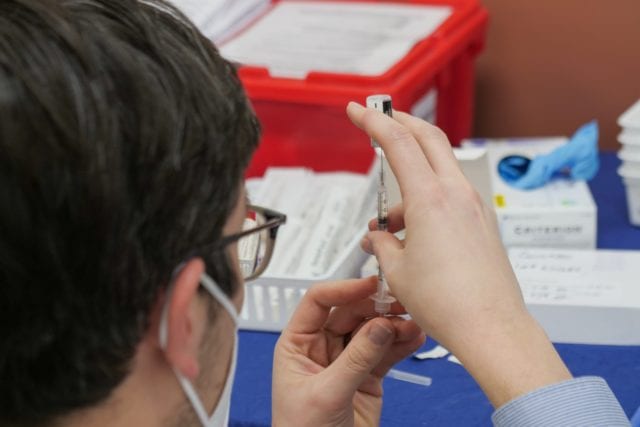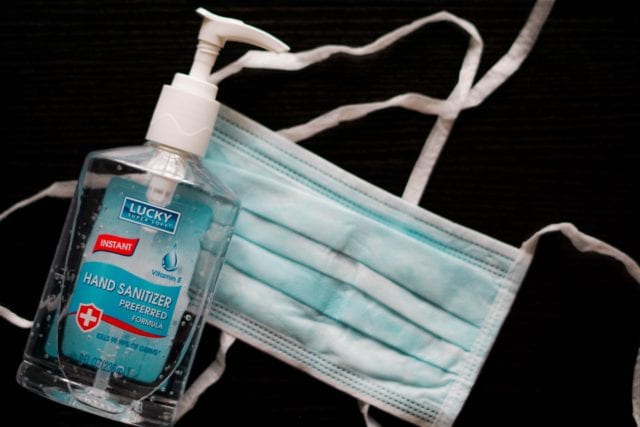No More Mask? 3 Things You Should Know About Getting Your COVID-19 Vaccine
The world, right now, is in the middle of a pandemic and this pandemic is known as the biggest health crisis and the most difficult challenge for the whole world after the Second World War. The deadly coronavirus has spread in almost every country, affecting millions of people and causing the tragic deaths of thousands of people. Furthermore, this virus has also destroyed the economy of the whole world and has led people towards unemployment and people have no idea when things will get normal.
The vaccine is the only weapon to fight against this deadly coronavirus. The WHO, researchers, and scientists around the world are collaborating and working together to develop effective and safe vaccines.
Over a half dozen vaccines from different platforms have been sent out in many countries and the main target for the vaccination is the vulnerable population of the country—such as healthcare workers, doctors, nurses, and people in high-risk groups. But one major concern right now is that people are not trusting these vaccines. They are worried about their side effects. But these people have to understand that these vaccines are really safe and getting a shot is extremely important to save the lives of the people and to end the pandemic.
How do vaccines work?

Vaccines were first invented in 1796 by Edward Jenner and they can be defined as products or substances which provide protection against specific, dangerous diseases. They work by triggering and preparing the immune system to identify foreign particles like bacteria, viruses, or germs, and then kill them by producing antibodies against them.
They are made up of dead or weakened microorganisms or part of the microorganism which is called an antigen. The mode of administration of most vaccines is through the subcutaneous route in the form of injections. But some are also given nasally in the form of a spray, or orally (through the mouth).
Millions of lives are saved by vaccines every year. As the vaccine contains a foreign particle, so the immune system will give the same response to this vaccine as it would give to the actual and real foreign particle. A vaccine works in the following way:
- After getting the vaccine against a particular disease, the vaccine triggers and activates the immune system of the body.
- As a result, the immune system recognizes the antigen present in the vaccine as a foreign particle.
- Then, the immune system gives a response by producing antibodies against that antigen. The antibodies kill that antigen or foreign particle.
- The immune system will remember this foreign particle. So in the future, if the person is ever exposed to this type of germ, the immune system will quickly destroy it and the person will not get the disease.
In this way, vaccines provide immunity. But they provide immunity only against a particular disease. Till now, a lot of vaccines have been made by researchers and scientists which provide protection against polio, tetanus, rubella, measles, whooping cough, etc. For some diseases, one dose is given but for others, multiple doses are required at specific times and ages.
Are the coronavirus vaccines safe?
Scientists and researchers are working really hard to save the lives of people by developing effective and safe vaccines. But people—even some healthcare workers and doctors—are reluctant and they are not ready for this vaccination because they don’t trust these vaccines. They lack confidence and are scared of its side-effects. This reluctance is a major barrier in eradicating the deadly infection of coronavirus from the world.
While all medicines and treatments, including vaccines, have some associated side effects, these vaccines are safe and right now getting a shot is the only solution to save the whole world from the disease. Because there are strict protocols and protections designed to ensure the efficacy and safety of the vaccines.
All vaccines need validation from the WHO and other agencies. But before this validation, the vaccines pass through rigorous testing and clinical trials. And the WHO gives validation to only those vaccines which meet the internationally approved standards and benchmarks. After giving validation, the WHO and other healthcare agencies continuously monitor the use of these vaccines and the people who are getting the vaccine. This monitoring confirms that the vaccine is safe for all or not.
If I already had COVID-19, do I still need the vaccine?
A lot of people, who suffered from this infection and recovered, think that they don’t need a vaccine. According to them, they will not get the disease again because antibodies against the virus are now present in their body. So if the virus attacks them again, those antibodies will protect them and they will not get the disease. But this is not true at all and it is a misconception.
Research has shown that the coronavirus that is affecting humans has many types. So if a person was infected with one type of coronavirus and he recovered, then there might be a possibility that the other type of coronavirus will attack him next time. And if the person doesn’t get the vaccine they may suffer from this disease again.
Secondly, it is not known yet that for how long you are safe and you will not suffer from this disease after the recovery. So on the basis of the above two reasons, it is suggested that you get a shot as soon as possible.
What should I do after getting the vaccine?

The protocol for getting this vaccine is almost same as the regular vaccines, such as chickenpox or tetanus shot. The only difference in this protocol is that the doctor or health professional asks you to sit there for about fifteen to thirty minutes so that he/ she can monitor any side-effects or adverse effects. After getting a shot, it is possible that you experience some moderate or mild side-effects like headache, chills, fatigue, fever, body aches, or redness, swelling, or a bump at the site of injection. These side-effects will disappear within one or two days. So after getting the vaccine, take some rest and eat a healthy diet.
Do I need to keep wearing a mask?
Yes, you should wear a mask even after vaccination. In fact, you should take all the necessary precautions. No doubt, a vaccinated person will not suffer from coronavirus infection for some time. But studies have shown that a vaccinated person is still able to transfer the virus to others. Because he may harbor the virus in his nose. So when a vaccinated person sneezes or breathes, he will infect other persons. So to protect your friends and family members and others from this novel coronavirus, it is better to wear a mask.
Is it safe to go outside?
After getting the vaccine, it is safe to go outside but WHO has recommended to take all the precautionary measures even after getting the vaccination. Getting a shot does not mean that you can put yourself and your loved ones and others (who are unvaccinated) at risk. Because it is still not known that to what extent and for how long this vaccine can protect against the disease. It is also not known that to which degree transmission can be stopped. Nothing is confirmed yet and scientists are still working on this.
Is it safe to meet with friends and family?
A fully vaccinated person can meet their friends, family members, and colleagues and it is safe to meet with them. But this is safe only if you are meeting with vaccinated people. In case, if you are going to meet with someone whose age is above 65 and is unvaccinated then you should wear a mask and maintain social distancing. Also, while going to a large gathering or an event, it is necessary to take precautions. This activity will protect others from COVID-19.
Conclusion
Coronavirus has affected the whole world. This pandemic was not only a health crisis, it was a socio-economic crisis as well. Due to this, a lot of people have lost their jobs. The rate of unemployment has increased in developing countries and people have been compelled to sit in their homes. People are getting tired from this pandemic, social distancing, and quarantine.
To end all this and to normalize things, many effective vaccines have been developed by scientists and many countries have started their administration as well. But people are not willing to get a shot of this vaccine. The vaccine does have some side-effects but those are temporary and people should know that it is better to get the vaccine than to get the disease.
It is necessary for all to take the necessary precautions. Like, wear a mask, use hand sanitizer, maintain social distancing, wash hands more frequently, avoid touching face, mouth, and nose in public places and avoid going outside unnecessarily. Also, get yourself vaccinated as soon as possible. These things will not only protect you but also others from the coronavirus.
After receiving his undergraduate degree in psychology, Scott went on to work as a teacher and educational counselor while working towards his master’s degree. He has spent several years working with children and adults and has personal experience with Attention Deficit Hyperactive Disorder, Dyslexia, and Depression.